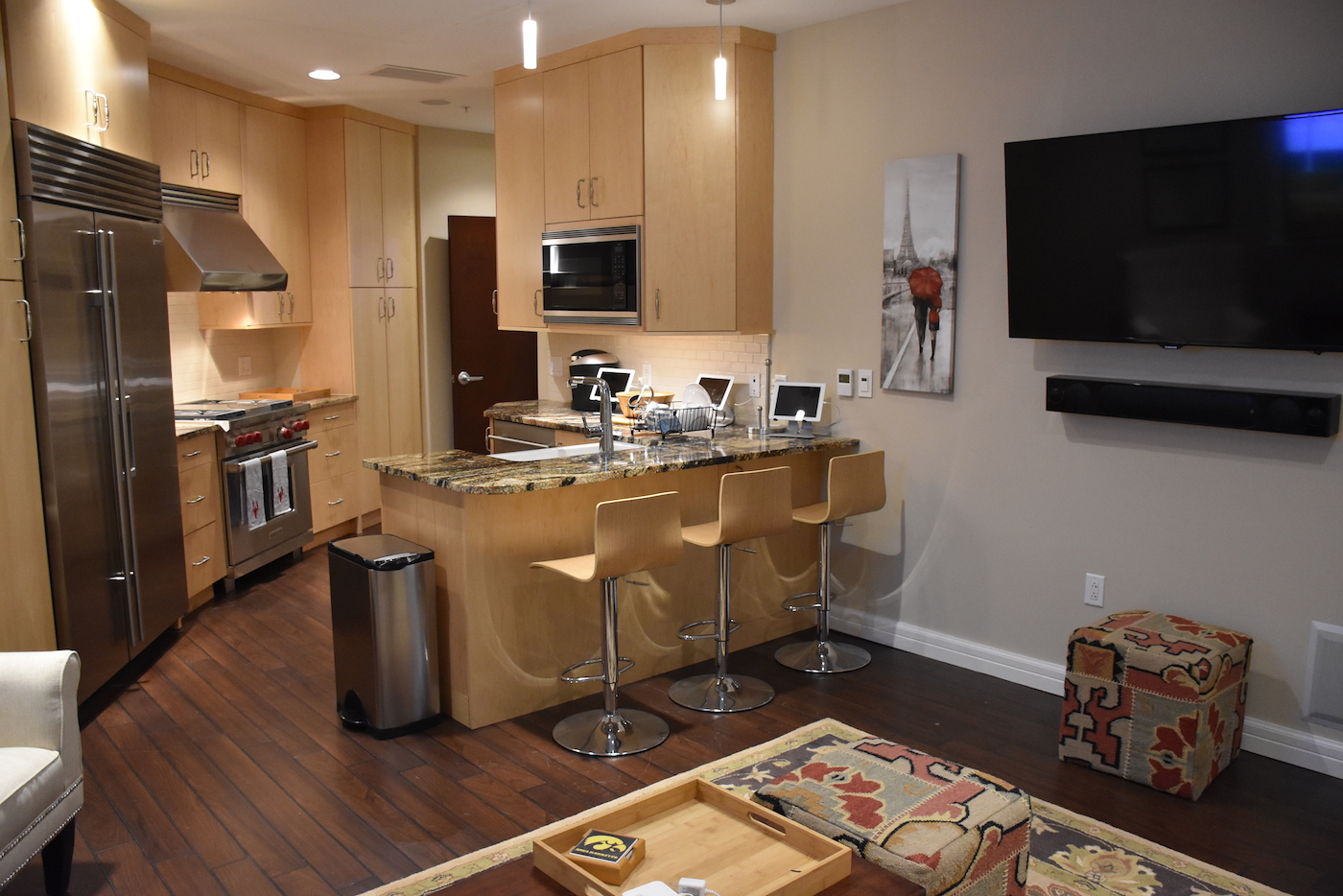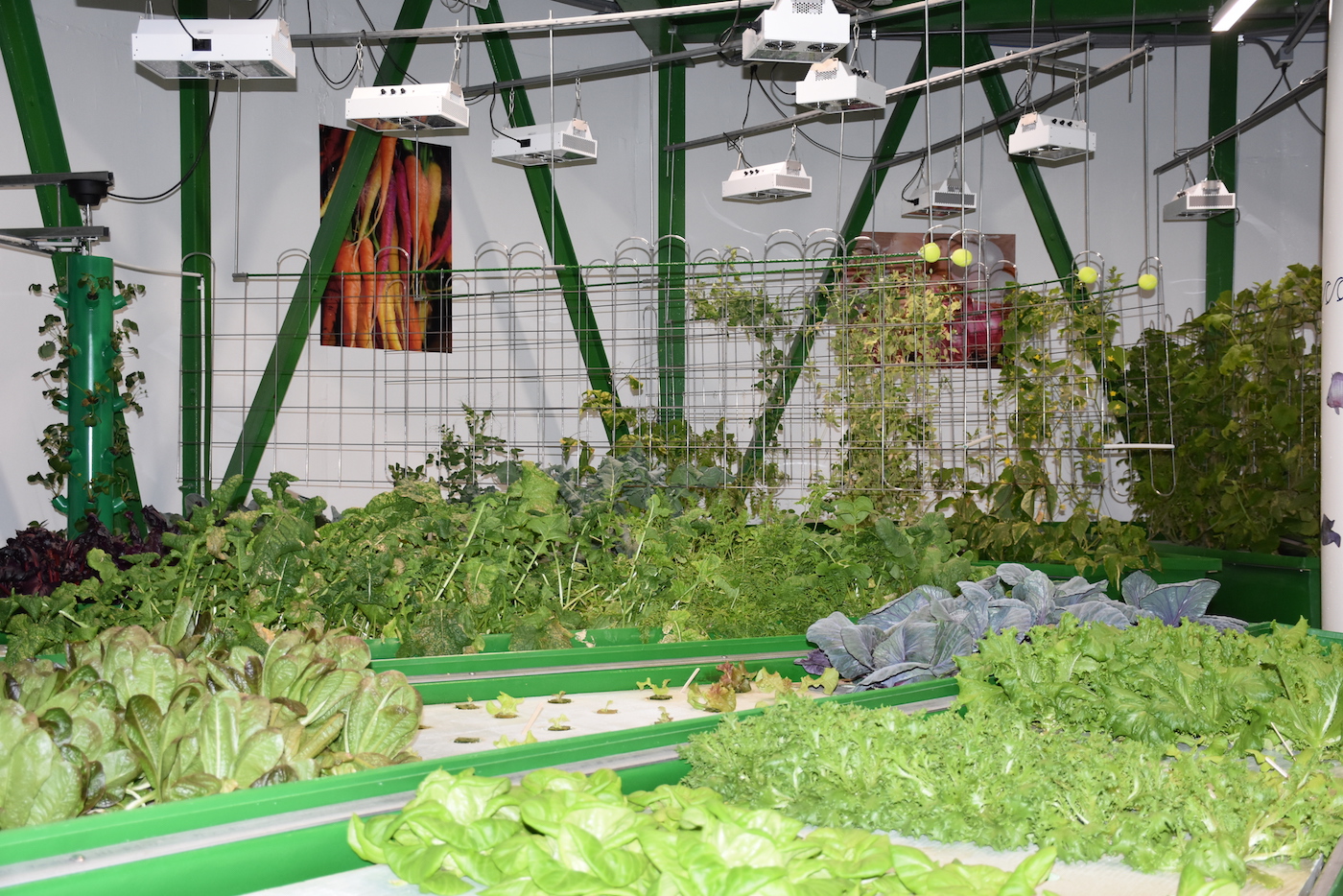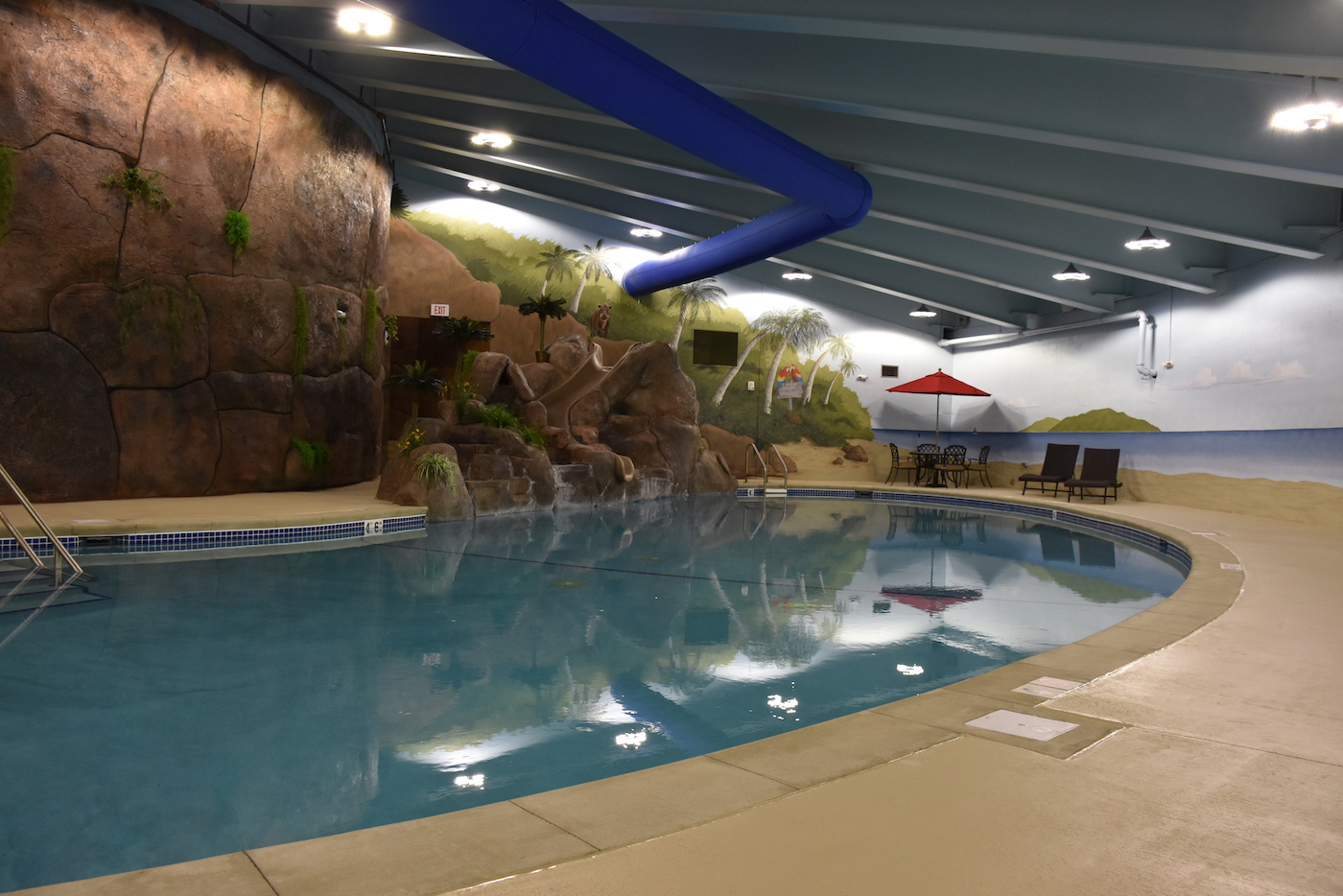Imagine you are a millionaire or billionaire anxious about a deadly virus spreading around the globe ravaging populations and upending trade relations and financial markets. What would you do? Where would you and your sacks of treasure go to hide from spiraling calamity? Under the current circumstances, this is not an idle question for the world’s wealthy and some of them are bunkering down. Literally.
Enter Survival Condo, a 15-story deep Cold War-era missile silo that has been repurposed as a luxury condo complex. The weapons that once occupied this space were called Atlas missiles, the first missiles capable of crossing continents to deliver an Armageddon-level nuclear warhead. For a few years after their deployment in 1959 they were among the deadliest objects on Earth, but by 1965 the Atlas had become obsolete and the 72 missile sites were decommissioned.
Half the silos were destroyed by the government. The remaining empty silos and the land around them were auctioned off. Farmers often bought them for pennies on the dollar and used the land for grazing.
Larry Hall, the developer and owner of Survival Condos, looked at these abandoned silos and saw a business opportunity. These were enormous underground cylindrical bunkers with hardened concrete walls up to nine feet thick and built to withstand a direct nuclear strike—a perfect place to hide out from the kind of world-ending disaster the Atlas missiles might once have created.
In 2008, Hall worked with the state of Kansas to find a silo that could be adapted for residential living. After acquiring one such silo in 2010, Hall started the arduous task of pumping out 1.3 million gallons of accumulated rainwater and gutting the silo of rusting launch structures and debris. With the silo emptied, Hall constructed a state-of-the-art underground condo building with a twist. The occupants of this luxury condo building, with redundant power systems, military-grade air filters and a five-year supply of food and water, could survive the apocalypse.
“The mission is to protect residents from a whole wide range of threats,” said Hall. “Everything from viral or bacterial threats and chemicals to volcanic ash, meteors, solar flares and civil unrest.”

He's gotten a surge of interest in his Survival Condos, as the rise of COVID-19, popularly known as the Coronavirus, has made people of all income brackets suddenly contemplate those sorts of disasters.
Ammunition sales are through the roof, and some Asian Americans worried about racist violence are buying guns. Hand sanitizer is in short supply, and people are bulk-buying toilet paper even if they aren't sure why. Stores that sell products like survival rations have seen huge sales spikes. My Patriot Supplies, an online retailer of emergency and survival gear, is so overwhelmed that its website warns would-be preppers about supply shortages and long waits. “National demand for storable food remains near 100X normal volume. Shipping WILL be delayed on orders, potentially 8 weeks or more in many cases. Complete checkout to reserve your place in line now!” reads a pop-up on the site.
Atlas Survival Shelter, which sells a wide-range of bunkers and shelters as well as survival materials has also seen a huge spike in the sale of their survival goods, especially food.
“Supplies are sold out,” said Ron Hubbard, the president of Atlas Survival Shelter. “There is nothing to buy and no suppliers to refill supplies.” Hubbard added that there has also been an uptick in interest in their survival shelters, the cheapest of which starts at $35,999.
If non-billionaires are shelling out that much money for backyard bunkers, it stands to reason that the wealthy are doing something similar. Survival Condo units cost $1.5 million for 900 square feet, or $4.5 million for 3,600 square feet. And prices can go higher if you customize the space. For example, one Saudi customer opted to add an underground mosque as well as a concealed subterranean James Bond-style helicopter hanger linked by a tunnel to their unit.
Each unit is equipped with an upscale modern kitchen and bathroom as well as “virtual windows,” wall screens that show a video-relayed current view of the outside world. The building also features a gym, a swimming pool, and a movie theater, alongside waste-processing facilities, a shooting range, a dog walking area, a classroom and aquaculture.

In the past, Hall told VICE, sales have been relatively slow. Few can afford the price, and not many of the planet's wealthy are so concerned about the end of the world that they're rushing to spend that much on a back-up plan. But in the era of COVID-19, that is changing.
A new owner in early March went from seeing a unit online to purchasing it four days later, sight unseen, Hall said. Sales have been so strong that Hall has almost sold out his second Survival Condo facility located at another undisclosed Atlas silo site in Kansas. At 150,000 square feet, this project will be even larger and can house more people.
“We've never had this many people schedule site tours in such a short period of time,” Hall said. “There are a record number of requests to tour the facility. It’s unprecedented and we’ve noticed a sense of urgency and a seriousness that wasn't there before.”
Critics feel that the whole underlying concept of surviving disasters through an individualized bunker mentality is fundamentally flawed. “The fortified condo is just not a viable doomsday strategy,” said Douglas Rushkoff, author and host of the Team Human podcast. “It's a Western billionaire’s view of the world.”
Rushkoff argues that our survival both as individuals and as a species relies on our ability to come together as a community and work together towards the common good.
“I don't think there are any justifiably positive reasons for people to do this sort of isolationist doomsday planning as an investment,” said Rushkoff. “Hopefully, as they proceed through this terror theater, they will come out the other side and realize that the only real solution is to all be in this together. Being human is a team sport.”

That argument is unlikely to persuade the people who have already spent millions. Survival Condo owner and Florida real-estate developer and entrepreneur Tyler White said he finds comfort in having a potential refuge in chaotic times.
“It's almost like a Camp David for your family,” said White. “A place to retreat to and regroup, and then you can go back when the things are safe.”
In the wake of the Coronavirus, White now feels vindicated in his decision to buy a Survival Condo.
“It's funny,” White said. “At first when we were building it everybody acted like we were crazy. They acted like we had tinfoil on our heads. Now, everybody takes us extremely seriously.”
Chris Iovenko is a Los Angeles–based writer whose work has appeared in such places as Slate, the Los Angeles Times, the Atlantic, the New York Times, The American Prospect, The Christian Science Monitor and the New Republic.
from VICE https://ift.tt/39Gnlzm
via cheap web hosting
No comments:
Post a Comment